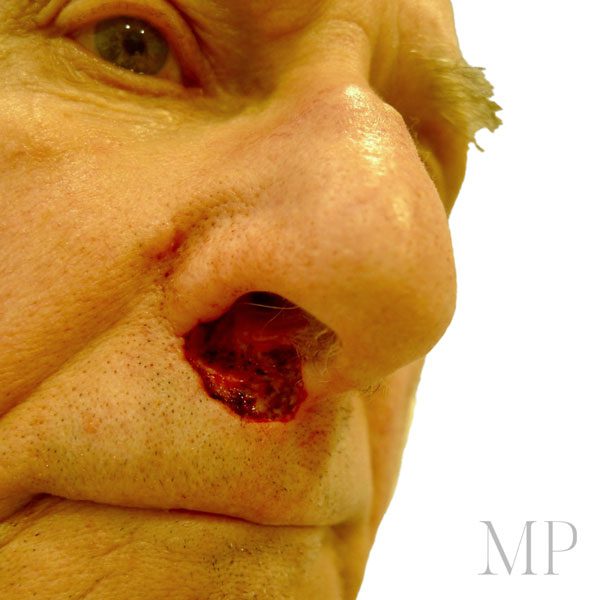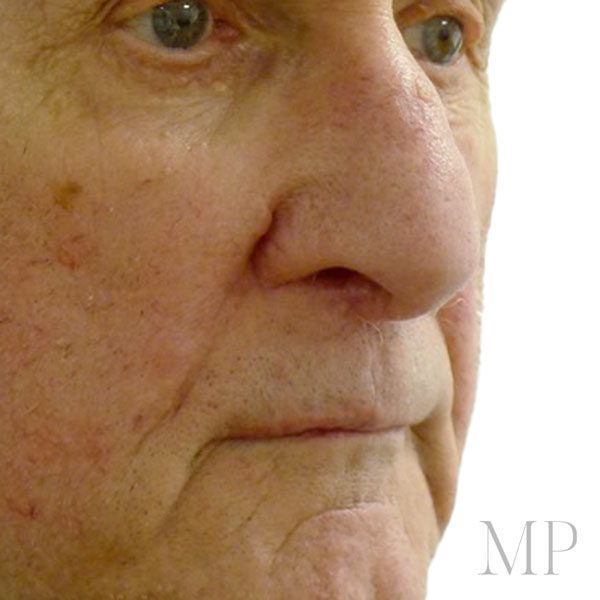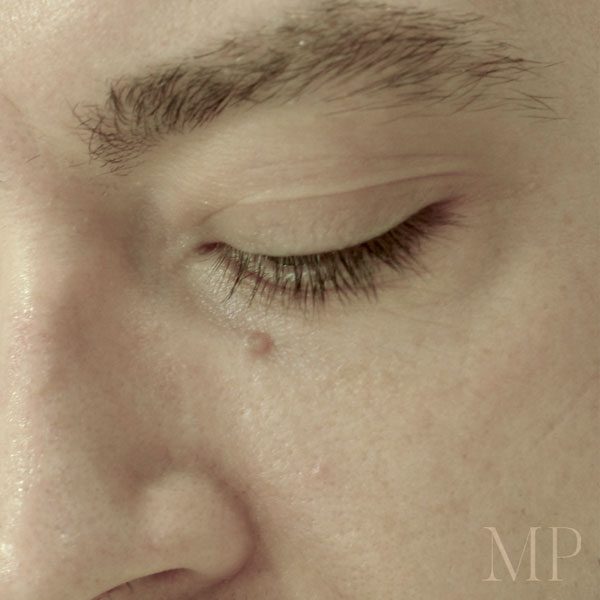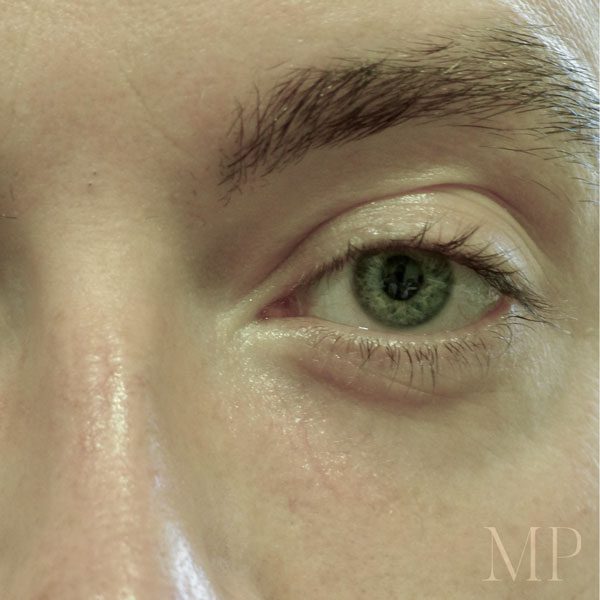Basal Cell Carcinoma
Basal Cell Carcinoma is the most common skin cancer and the most common cancer world wide. The UK annual incidence is 146 cases per 100,000. Originally called “Rodent Ulcer”, these tumours can grow locally causing tissue destruction of neighbouring structures and if left untreated for some time can therefore be more difficult to treat. They very, very rarely spread.
Basal Cell Carcinoma most commonly occur on the head and neck. More often that not they are a small slow growing waxy nodule with a central pit. They can mimic other lesions but are easier to diagnose with Dermoscopy which Mr Potter undertakes at your outpatient visit.
Generally, they occur on the face, with the mainstay of treatment being Surgery. Mr Potter particularly has the techniques and support to remove tumours and reconstruct the defect to give the optimum aesthetic result and maintain as much function. With larger defects Mr Potter will use flaps of local skin to give a colour match. Specifically where possible, he will aim to hide the scars within skin folds.
Mr Potter will show you photographs of previous patients that have had similar tumours with similar reconstructions so that you can understand the initial post operative result as well as how such surgery settles with time.
If your BCC is complex, extensive or involving a site that has cosmetic or functional concerns Mr Potter may well discuss the role of minimal margin excision using MOHS surgery. Complex or extensive BCCs will be furthermore discussed at a Multidisciplinary team meeting where alternative forms of treatment or a combination of treatments will be discussed to give you the optimum treatment plan.
Please click to view Matthew Potter’s patient feedback.

The Data
National average for complete excision of BCCs
95%
Mr Potter’s complete excision rate for BCCs
99%
Percentage of flaps lost in reconstructing BCC defects
0%
Percentage of grafts lost in reconstructing BCC defects (last three years)
0%
Percentage of cases that have had a return to theatre following BCC excision
<1%



